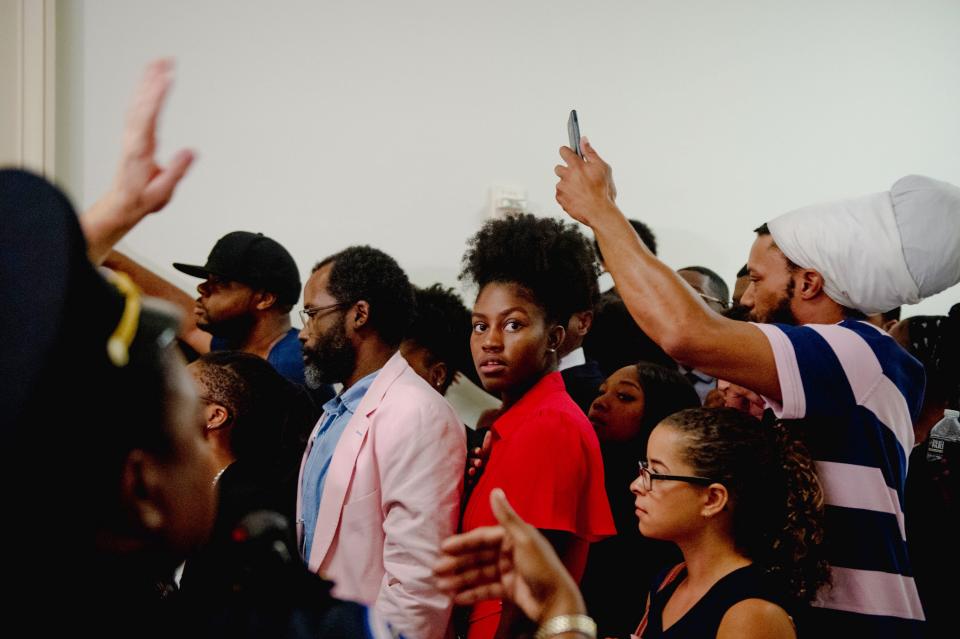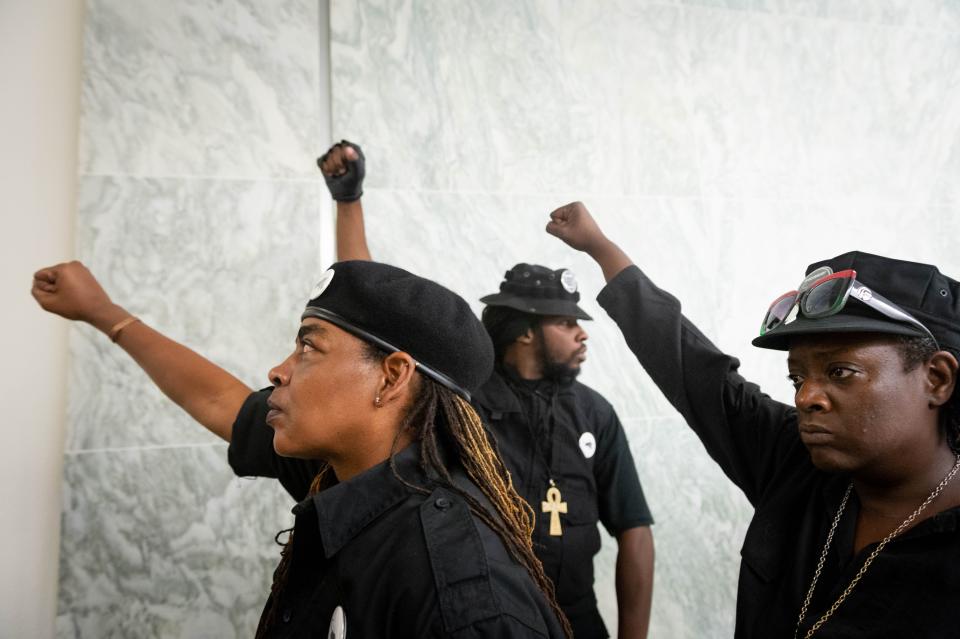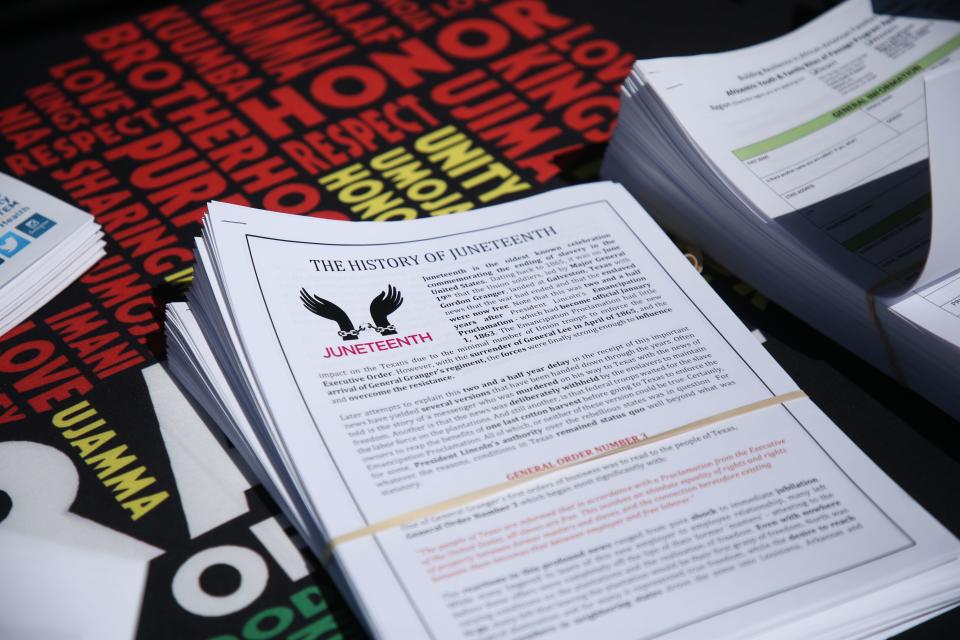California Gov. Gavin Newsom signed a handful of wide-ranging racial justice bills this week, including a formal apology by the state for perpetuating slavery, discrimination and segregation against Black people.
The bill is one of dozens presented to lawmakers over the past year aimed at addressing the legacy of racial discrimination in the state, borne out of the California Reparations Task Force in 2020. The bill passed Thursday, sponsored by task force member and state assemblyman Reggie Jones-Sawyer, D-Los Angeles, calls for the installation of a plaque memorializing the apology.

“This is a monumental achievement born from a two-year academic study of the losses suffered by Black Americans in California due to systemic bigotry and racism,” Jones-Sawyer said in a statement Thursday. “Healing can only begin with an apology.”
The apology points to several policies and practices, such as the enforcement of fugitive slave laws, the denial of fundamental liberties to African slaves and their descendants, extrajudicial police killings, and state-sanctioned violence and housing discrimination, among others.
California’s apology for the state’s role in slavery: Read the full text here.
California joins a handful of other states, including Alabama, Florida, Iowa, Maryland, North Carolina, New Jersey, and Virginia, issuing formal apologies for their role in slavery, acknowledging historical injustices and the ongoing impacts of racial discrimination. Newsom, Senate leader Mike McGuire, Assembly Speaker Robert Rivas, and California Supreme Court Chief Justice Patricia Guerrero are all named on the official apology.
In its June 2023 final report, the task force detailed the state’s role in perpetuating multi-generational harm against Black families via Jim Crow-era policies spanning education, employment, economy, society, and housing. The report recommended over 100 policy proposals and supported 14 bills introduced in the latest legislative session. The task force has also recommended direct cash payments to descendants of slaves, which the Legislature has not yet addressed.


Of the original slate of 14 bills introduced last year, many of the more substantive and controversial measures have either been vetoed or hit roadblocks in the legislature. Lawmakers last month torpedoed bills that would have created an agency to review reparations claims and a fund for future reparations payments, while on Wednesday, Newsom vetoed two others. One would have created a process for Black families to file a claim for compensation if they believed the government seized their property through discriminatory eminent domain, and the other would have made medically supportive food and nutrition interventions a covered Medi-Cal benefit.
Here are the bills Newsom signed into law this week:
-
Food & medical deserts: Requires grocery stores and pharmacies to provide advance notice to the community and workers before closures, helping to address food deserts that disproportionately affect communities of color.
-
Protections against discrimination: Clarifies that “race” includes traits associated with race, such as hair texture and protective hairstyles, providing stronger protections against discrimination.
-
Maternal health disparities: Authorizes the Attorney General to enforce against hospitals that are out of compliance with existing law requiring perinatal health care workers to complete anti-bias training.
-
Literature in prisons: Mandates that the Office of the Inspector General post and review the list of banned books in state prisons, promoting access to literature for incarcerated individuals.
-
California Black-serving institutions: Creates the designation of “California Black-Serving Institutions,” to recognize higher education campuses that excel in providing resources and support to Black students.
Of the half-dozen bills that passed both chambers and escaped the veto pen, many are what critics call symbolic, expressing disappointment over the failure of what reparations advocates consider to be more effective and transformative proposals.


In a statement Thursday, Newsom commended the California Legislative Black Caucus and presented this week’s bill signings as part of an ongoing effort to confront the legacy of slavery.
“The State of California accepts responsibility for the role we played in promoting, facilitating, and permitting the institution of slavery, as well as its enduring legacy of persistent racial disparities,” Newsom said. “Building on decades of work, California is now taking another important step forward in recognizing the grave injustices of the past — and making amends for the harms caused.”
Kathryn Palmer is an elections fellow for USA TODAY. Reach her at [email protected] and follow her on X @KathrynPlmr.
This article originally appeared on Palm Springs Desert Sun: California Gov. Newsom signs law apology slavery segregation reparations















